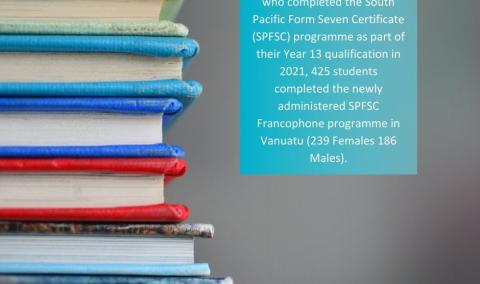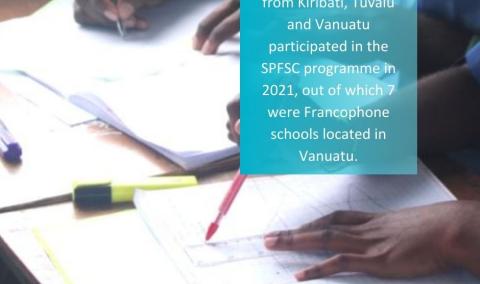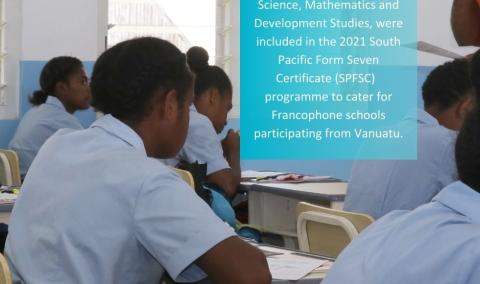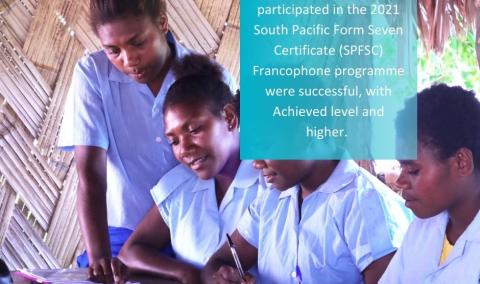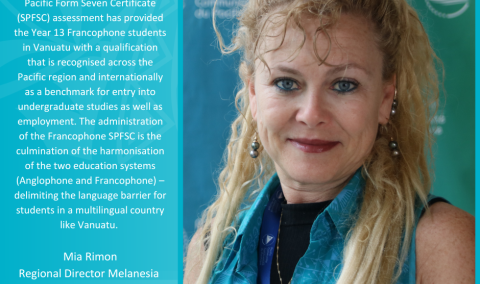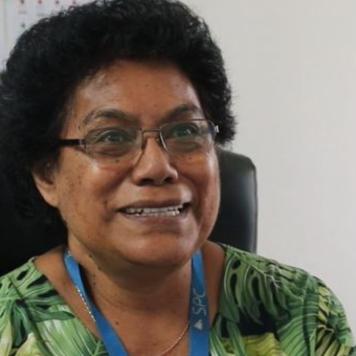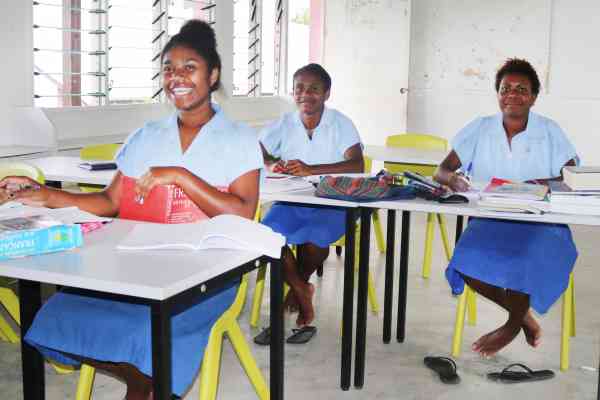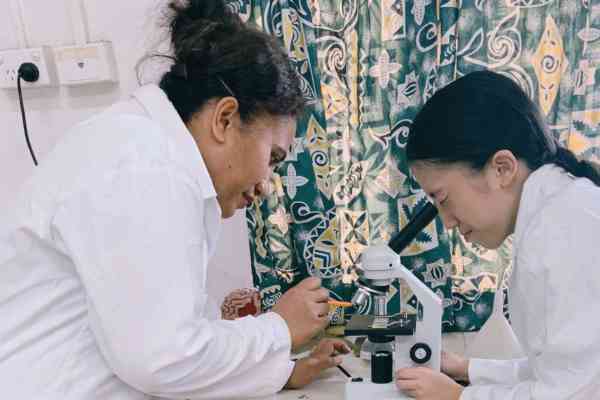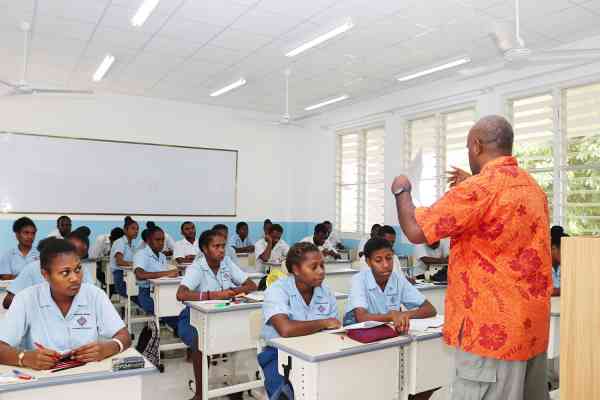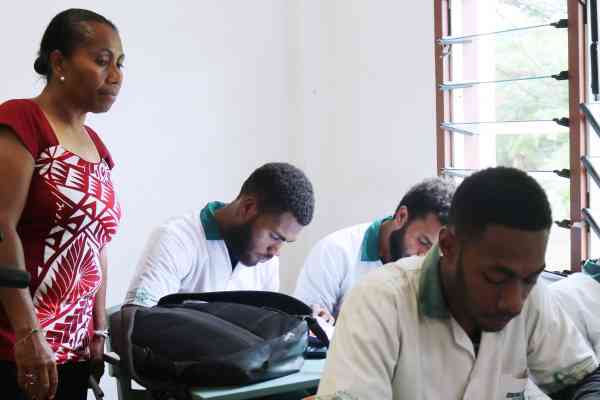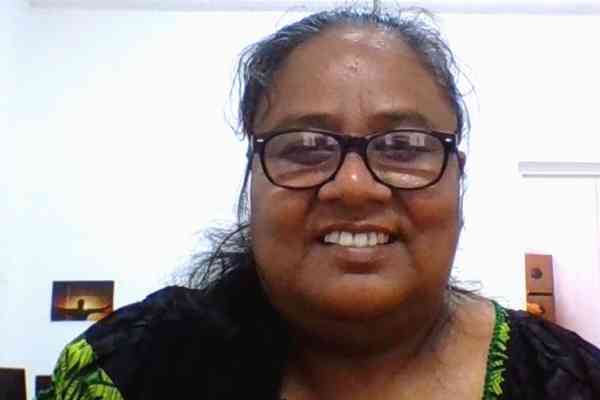Almost a decade long commitment to compiling the curriculum and assessments for the Francophone version of the South Pacific Form Seven Certificate (SPFSC) yielded success in 2021, providing Francophone students with a qualification that provides better opportunities for entrance into French speaking universities or finding employment locally in Vanuatu.
Following the success of the 2021 administration, student enrolment in the 2022 Francophone SPFSC has increased, with 531 registrations already recorded when compared to 425 last year – and it’s just mid of 2022!
In 2013, Vanuatu’s Ministry of Education had requested the Pacific Community (SPC) to support its Curriculum development Unit in harmonising the country’s national curriculum. Thus, SPC’s Educational Quality and Assessment Programme (EQAP) started supporting the Vanuatu Curriculum Development Unit with the development of the harmonised curriculum for Years 11, 12 and 13. In this harmonised curriculum, content, teaching and learning outcomes, suggested activities and assessments with Anglophone students match those that are used with the Francophone students.
After six years of hard work put in by our Vanuatu counterparts and EQAP staff, in 2019, the first cohort of Francophone students were assessed using the harmonised assessments at the Year 11 level. The same cohort then sat for the Year 12 assessment in 2020 and then in 2021, this cohort was the first group to sit for the harmonised SPFSC assessment.
So, what caused this harmonisation of the Francophone assessment? Prior to the creation of the Francophone version of the SPFSC assessment, the French speaking students used a different curriculum, and they were required to attend an additional year in high school which was referred to as Year 14. This additional year acted as an entrance to French universities.
However, with the SPFSC assessment now being harmonised, the Francophone students do not need to go through the Year 14 studies, as they are able to enter universities based on their performance in the Year 13 SPFSC assessment.
The SPFSC Francophone assessment was created by condensing three different curriculum content, which included, the Anglophone national content, the Francophone national content and the SPFSC content developed through collaboration between Vanuatu’s Curriculum Unit, Exams Unit and the EQAP Curriculum and Assessment team.
Apart from increased opportunities to get into recognised universities in the region and abroad and increased opportunities for employment, I personally think an equally valuable gain from administering the same assessment in the two languages is that it allows students to talk to each other since the assignments and internal assessments are the same. For example, the internal assessment question could be about the ecological niche of a fiddler crab. Students can now talk to each other in English, French or in Bislama as they will be researching about the same issues – this was not the case before. This opens the social dimension of the assessment that allows all Year 13 students in the country to sit for the same assessments regardless of the language they speak.
In terms of the benefits to Vanuatu’s education system, the harmonisation of the SPFSC assessment proves that the country is able to expand and improve its qualifications. In this case, Vanuatu has an additional qualification in its list; the French version of the SPFSC.
The establishment of the Francophone assessment has also allowed Vanuatu’s Ministry of Education to strengthen its pre-existing vision to support the nation’s Francophone students to get into French Universities in the region and abroad. This also gives the Ministry the opportunity to compare the Francophone assessment with other French assessments in the region with the vision to provide the Francophone students with more opportunities for studies in the future.
As for the teachers at the Year-13 level, the harmonisation of the SPFSC has allowed teachers from the two systems to interact with each other and has led to the strengthening of the cohort of teachers at the higher secondary level. For the first time, they were able to discuss and review the curriculum, which is strengthening the country’s education system.
In terms of performance of students in the harmonised assessment, Francophone students performed just as well as Anglophone when comparing the success rate. In 2021, 92% of Anglophone students achieved the minimum level for success and better, compared to 90% for Francophone students.
The harmonisation of the SPFSC assessment was made easier by the Pacific Schools Information Management System (PacSIMS), which is a modular based system that captures data related to students, teachers and school leaders in a centralized database. This cloud-based system was used to register and enrol both Francophone and Anglophone students for SPFSC and to capture and process their assessment data.
This virtual tool ensured integrity of the data thus providing quality reports for future decision making.
Vanuatu is now working to create its own Year 13 assessment, that is equivalent to the harmonised version of the SPFSC. EQAP has provided a number of recommendations on things that need to be in place to allow them to deliver and award their own national qualification. EQAP is standing by to assist Vanuatu with this move and will still be preparing the exam papers for this national qualification.
In terms of the future for this national Year 13 qualification, I expect it to be here to stay. I strongly believe that this qualification is going to be sustained over the years with the increased support from Vanuatu’s Ministry of Education.
